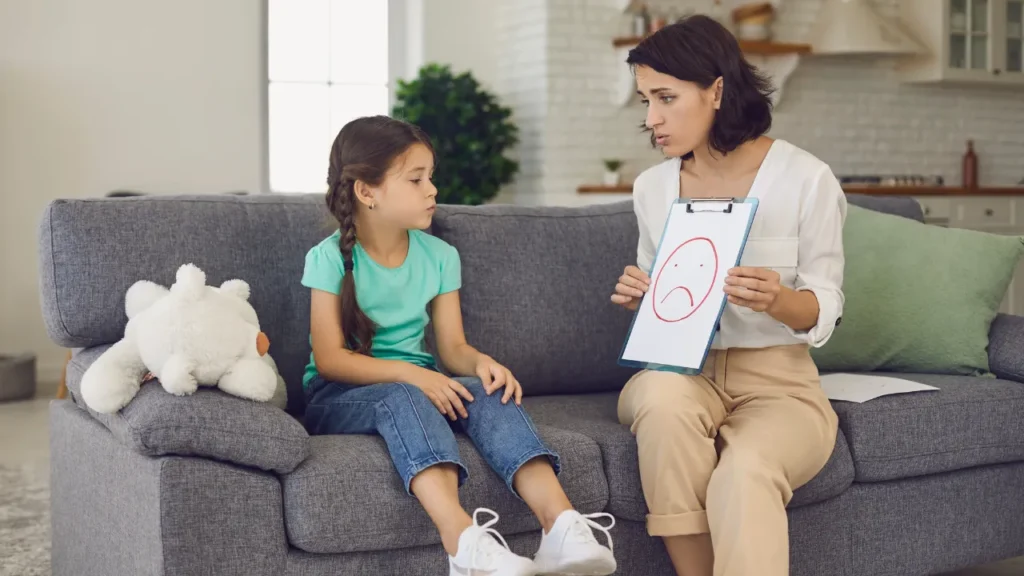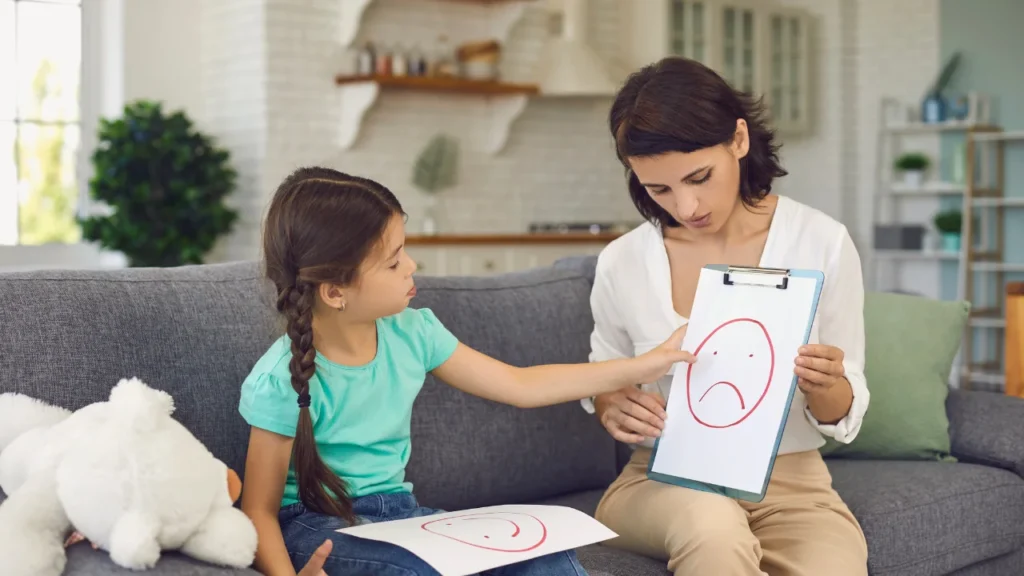Top Signs Your Child May Need Behaviour Therapy in Australia
As a parent, it’s natural to wonder if your child’s behaviour is typical or something that needs extra support. All children go through ups and downs. But some behaviours are more than just a phase—they may be signs that your child needs professional help.
That’s where Behaviour Therapy for Children in Australia becomes incredibly important. It offers structured support for emotional, social, and behavioural challenges, especially when daily life becomes overwhelming, for both the child and the parent.
What Is Behaviour Therapy?
Behaviour therapy is a type of support that helps children manage emotional, social, and behavioural challenges. It’s especially helpful for kids who struggle with communication, self-regulation, or following everyday routines. In Australia, behaviour therapy is often available through NDIS funding for eligible children. This kind of therapy doesn’t label your child—it empowers them with tools to thrive.

1. Frequent Meltdowns
Tantrums are normal, especially in toddlers. But if your child has intense outbursts that happen often and last a long time, it might be more than just typical behaviour. You may notice your child:
- Screams over small issues
- Hits or throws objects
- Takes a long time to calm down
Meltdowns can be a sign your child is struggling to express big feelings in a healthy way. Behaviour Therapy for Children in Australia helps kids learn how to understand and manage emotions step by step.
2. Difficulty Following Instructions
Does your child often ignore simple requests? For example:
- You ask them to pack up their toys, but nothing happens
- You repeat yourself several times
- They seem frustrated or confused by everyday tasks
This isn’t always disobedience. Sometimes, it’s a sign your child has trouble with focus or processing instructions. A therapist can teach your child how to follow directions using visuals, routines, or prompts that reduce frustration.
3. Aggressive Behaviour
Some children hit, bite, push, or lash out when they feel overwhelmed. This can happen at home, in school, or even in public. You might notice:
- Hurting siblings or classmates
- Breaking things in anger
- Using threatening words or gestures
Aggression is often a sign your child doesn’t have the tools to cope with stress. Behaviour Therapy for Children in Australia helps children replace harmful behaviours with calm, safe responses.
4. Trouble Socialising with Others
Some children find it hard to play, share, or interact with others. You may notice:
- They prefer to play alone
- They have few or no close friends
- They don’t understand social cues like tone or body language
Kids with social difficulties often feel misunderstood. Therapy helps by teaching them how to build friendships and interact confidently in groups.
5. Avoiding School or Public Places
If your child often refuses to go to school or avoids certain places, it could be more than just shyness. You might see:
- Frequent tummy aches before school
- Fear of crowds or noise
- Crying or shutting down in new environments
Avoidance can be linked to anxiety or sensory overload. A therapist can help your child face new situations with confidence through gentle exposure techniques.

Why Early Behaviour Therapy for Children in Australia Matters
The earlier children get support, the better the outcomes. Australian studies show early intervention can:
- Improve learning and communication
- Reduce long-term behavioural issues
- Strengthen family relationships
Early therapy builds a strong foundation and supports long-term emotional growth.
6. Rigid Routines or Repetitive Behaviours
Does your child insist on things being “just right”? You may notice:
- Lining up toys repeatedly
- Getting upset if routines change
- Repeating certain words or actions
While routines offer comfort, rigid behaviours can interfere with social or learning activities. Behaviour Therapy for Children in Australia helps children build flexibility while keeping their sense of structure.
7. Delayed Emotional Skills
Children aren’t born knowing how to handle big feelings. If your child:
- Struggles to explain how they feel
- Overreacts to minor problems
- Has trouble calming down alone
They may benefit from guidance. Therapists use stories, play, and visual aids to help kids develop emotional awareness and control.
8. Behaviour Problems at School
If your child is constantly getting in trouble at school, it’s worth looking deeper. Signs might include:
- Being sent out of class
- Refusing to participate
- Clashing with teachers or classmates
Schools often address symptoms, not the root cause. A behaviour therapist works with the school and family to create solutions that last.
9. You’re Feeling Stuck as a Parent
Sometimes, the most important sign is your own feeling. If you’ve tried everything—rewards, consequences, routines—and still feel lost, therapy might be the answer. It supports your child and gives you tools, too.
You’ll learn how to:
- Set clear expectations
- Respond with confidence
- Celebrate even small progress
You are not alone. Many Australian parents feel the same before discovering what Behaviour Therapy for Children in Australia can do.
Behaviour Therapy in Australia: How It Works
Many families access therapy through the National Disability Insurance Scheme (NDIS). If your child has autism, ADHD, or developmental delays, they may qualify for support.
A typical therapy journey includes:
- Emotional regulation skills
- Communication tools
- Social interaction training
- Behaviour support plans
- Parent coaching
At Iconic Care Group, we provide compassionate, evidence-based NDIS Behaviour Support Services in Australia to help your child reach their full potential. Our team works closely with families to create plans that build confidence and connection.
What to Expect After Starting Therapy
Progress takes time—but small steps lead to big wins. With therapy, you might see improvement in:
- Morning and bedtime routines
- Handling frustration
- Social interactions
- Following directions
- Staying calm in busy places
Therapists will guide, adjust, and support both you and your child every step of the way.
Conclusion
If your child shows signs like frequent meltdowns, social difficulty, or aggression, don’t wait. Early support from Behaviour Therapy for Children in Australia can make all the difference. Help is available—and with the right guidance, positive change is possible.